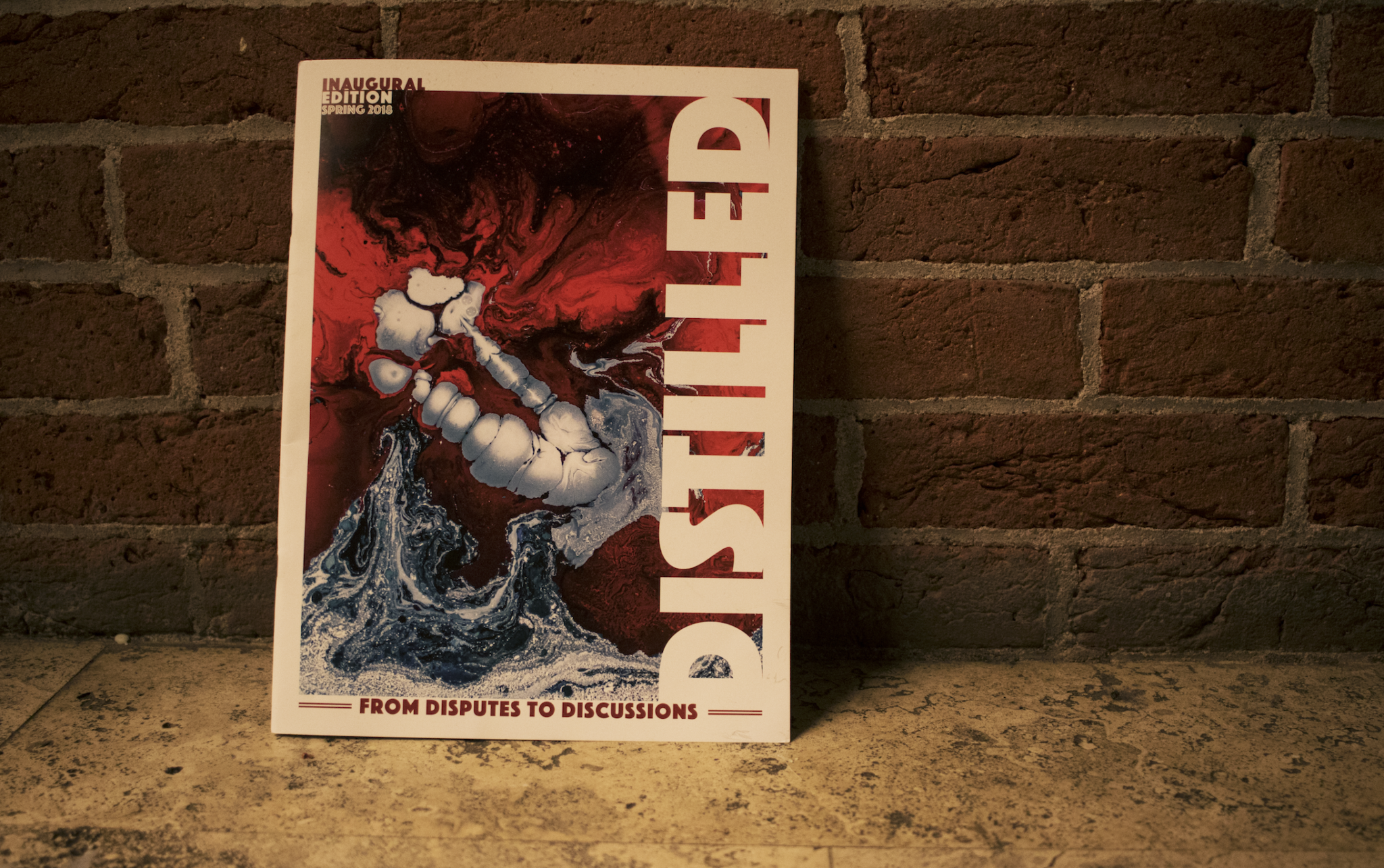
Distilled, a publication created to operate at the intersection of science and the humanities, held a launch party Saturday evening to celebrate the release of its inaugural issue. The issue covers subjects ranging from the ethics of gene therapy to the stigma surrounding substance abuse.
“What we would like to do is spark a conversation about the issues that are going to define society in the future,” said Bara Badwan GRD ’21, managing editor of Distilled. “The scientific debates of the future are going to be way more influential on our society than they have been in the past. So we need science to be discussed rigorously and honestly, and we need scientists to be engaged in that discussion.”
Saturday’s launch party drew approximately 100 people, including some of the magazine’s team members and sponsors, to the Rose Alumni House on York Street. Attendees enjoyed food from Ivy Wok and beverages from two New Haven distilleries — invited in part as an allusion to the magazine’s title. The event’s invitation listed the suggested attire as “creative formal,” but most attendees showed up in dresses and suits. For the entire evening, a 3-D printer adorned with a red balloon sat in the corner of the room, working away at crafting two interlocking plastic loops.
The magazine is the brainchild of molecular biophysics and biochemistry student and Distilled editor in chief Raj Basak GRD ’21, who said that the Distilled team prides itself on the magazine’s cross-disciplinary approach to topics at the forefront of discussion in the scientific community.
All Distilled articles have a clear argument on a scientific topic, Badwan said. Oftentimes, he said, scientists are averse to taking a strong stance on issues, an attitude important to the objective pursuit of science. But he stressed that it is also important for scientists to go out into the public sphere and say, “This is what we know, and this is what needs to be done based on what we know.”
While the magazine is run by Yale undergraduate and graduate students, writers from Amherst, Tufts and the Icahn School of Medicine at Mount Sinai contributed to the inaugural issue. Badwan said Distilled plans to expand to other institutions for its future issues, which will come out each semester.
Most of the evening consisted of eating, drinking and mingling. Attendees, many of whom had worked on the issue, stopped by a table in the center of the room to pick up copies.
Ramamurti Shankar, a Yale physics professor, gave the night’s only speech, congratulating the Distilled team and sharing some of the wisdom gained from his own lengthy career in science. According to Shankar, the magazine has the capacity to bring people together by starting conversations about topics that might be completely unfamiliar to readers.
“The idea of Distilled is to have a scientific magazine that is accessible to people who don’t necessarily have graduate degrees in science,” said Mary Clare McMahon ’21, a copy editor for the magazine. “Speaking as a humanities student, I’m not sure that I would necessarily be able to understand other scientific publications in their full implication, but Distilled is written so I’m able to do that, so that’s refreshing and nice.”
Maya Chandra | maya.chandra@yale.edu







